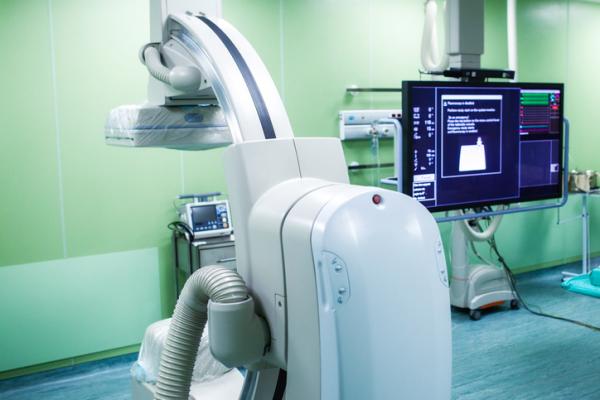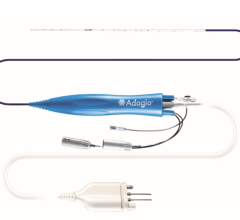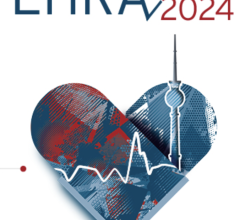
Getty Images
August 30, 2023 — Immediate multivessel percutaneous coronary intervention (PCI) is non-inferior to staged multivessel PCI for reducing death and ischemic events in patients with ST-segment elevation myocardial infarction (STEMI) and multivessel coronary artery disease, according to late breaking research presented in a Hot Line session today at ESC Congress 2023.1
Multivessel coronary artery disease is present in about half of patients with STEMI and is associated with increased risks of recurrent myocardial infarction and mortality.2-5 The COMPLETE trialdemonstrated that among patients with STEMI and multivessel coronary artery disease, complete revascularization was superior to culprit-lesion-only PCI for reducing ischemic events and death.6 ESC guidelines state that routine revascularization of non-infarct-related artery lesions should be considered in STEMI patients with multivessel coronary artery disease before hospital discharge.7 However, there is a lack of evidence on the optimal timing of multivessel PCI (immediate versus staged).7,8
The MULTISTARS AMI trial investigated whether immediate complete revascularization at the time of primary PCI was non-inferior to staged (within 19 to 45 days) multivessel PCI among hemodynamically stable patients with STEMI and multivessel coronary artery disease.9
The trial included patients with acute STEMI (presenting within 24 hours of symptom onset) and multivessel coronary artery disease (defined as at least one coronary lesion with ≥70% diameter stenosis on coronary angiography based on visual estimation in a non-culprit coronary artery of ≥2.25 mm and ≤5.75 mm in diameter), who were hemodynamically stable after successful primary PCI of the infarct-related coronary artery.
Patients were randomly allocated in a 1:1 ratio to immediate or staged (within 19 to 45 days) PCI of the non-culprit lesions. The primary endpoint was a composite of all-cause death, non-fatal myocardial infarction, stroke, unplanned ischemia-driven revascularization, or hospitalization for heart failure within one year after randomization.
The trial enrolled 840 patients from 37 sites in Europe. The average age of participants was 65 years and 21.2% were women. At one year, the primary endpoint occurred in 35 patients (8.5%) in the immediate group and in 68 patients (16.3%) in the staged group (risk ratio 0.52; 95% confidence interval 0.38 to 0.72; p<0.001 for non-inferiority; p<0.001 for superiority). The median time interval from randomization to staged procedures in the staged group was 37 (interquartile range 30-43) days.
Non-fatal myocardial infarction occurred in 8 patients (2.0%) in the immediate group and in 22 patients (5.3%) in the staged group (hazard ratio [HR] 0.36; 95% confidence interval [CI] 0.16 to 0.80), and unplanned ischemia-driven revascularization was performed in 17 patients (4.1%) in the immediate group and in 39 patients (9.3%) in the staged group (HR 0.42, 95%CI 0.24 to 0.74). Rates of all-cause death, stroke, and hospitalization for heart failure did not differ between groups.
Principal investigator Dr. Barbara Stähli of the University Hospital Zurich, Switzerland, said: “MULTISTARS AMI addresses the clinically important question of the optimal timing for a complete revascularization of patients with STEMI and multivessel coronary artery disease. The trial has implications for clinical practice, as it demonstrated that immediate PCI of non-culprit lesions is as effective and safe as a staged procedure. Results were generally consistent across prespecified key subgroups, particularly among women and men, young and older patients, and patients with or without diabetes.”
For more information: www.escardio.org
Find more ESC23 conference coverage here
References and notes
- MULTISTARS AMI will be discussed during Hot Line 6 on Sunday 27 August at 16:30 to 17:30 CEST in room Amsterdam.
- Sorajja P, Gersh BJ, Cox DA, et al. Impact of multivessel disease on reperfusion success and clinical outcomes in patients undergoing primary percutaneous coronary intervention for acute myocardial infarction. Eur Heart J. 2007;28:1709-1716.
- Jensen LO, Terkelsen CJ, Horvath-Puho E, et al. Influence of multivessel disease with or without additional revascularization on mortality in patients with ST-segment elevation myocardial infarction. Am Heart J. 2015;170:70-78.
- Kober L, Engstrom T. A more COMPLETE picture of revascularization in STEMI. N Engl J Med. 2019;381:1472-1474.
- Janardhanan R, Kenchaiah S, Velazquez EJ, et al. Extent of coronary artery disease as a predictor of outcomes in acute myocardial infarction complicated by heart failure, left ventricular dysfunction, or both. Am Heart J. 2006;152:183-189.
- Mehta SR, Wood DA, Storey RF, et al. Complete revascularization with multivessel PCI for myocardial infarction. N Engl J Med. 2019;381:1411-1421.
- Ibanez B, James S, Agewall S, et al. 2017 ESC Guidelines for the management of acute myocardial infarction in patients presenting with ST-segment elevation. Eur Heart J. 2018;39:119–177.
- Neumann FJ, Sousa-Uva M, Ahlsson A, et al. 2018 ESC/EACTS Guidelines on myocardial Revascularization. Eur Heart J. 2019;40:87–165.
- Stahli BE, Varbella F, Schwarz B, et al. Rationale and design of the MULTISTARS AMI Trial: A randomized comparison of immediate versus staged complete revascularization in patients with ST-segment elevation myocardial infarction and multivessel disease. Am Heart J. 2020;228:98-108.
Related content:
Complete Revascularization Superior to Culprit Lesion-only Intervention


 August 29, 2025
August 29, 2025 









